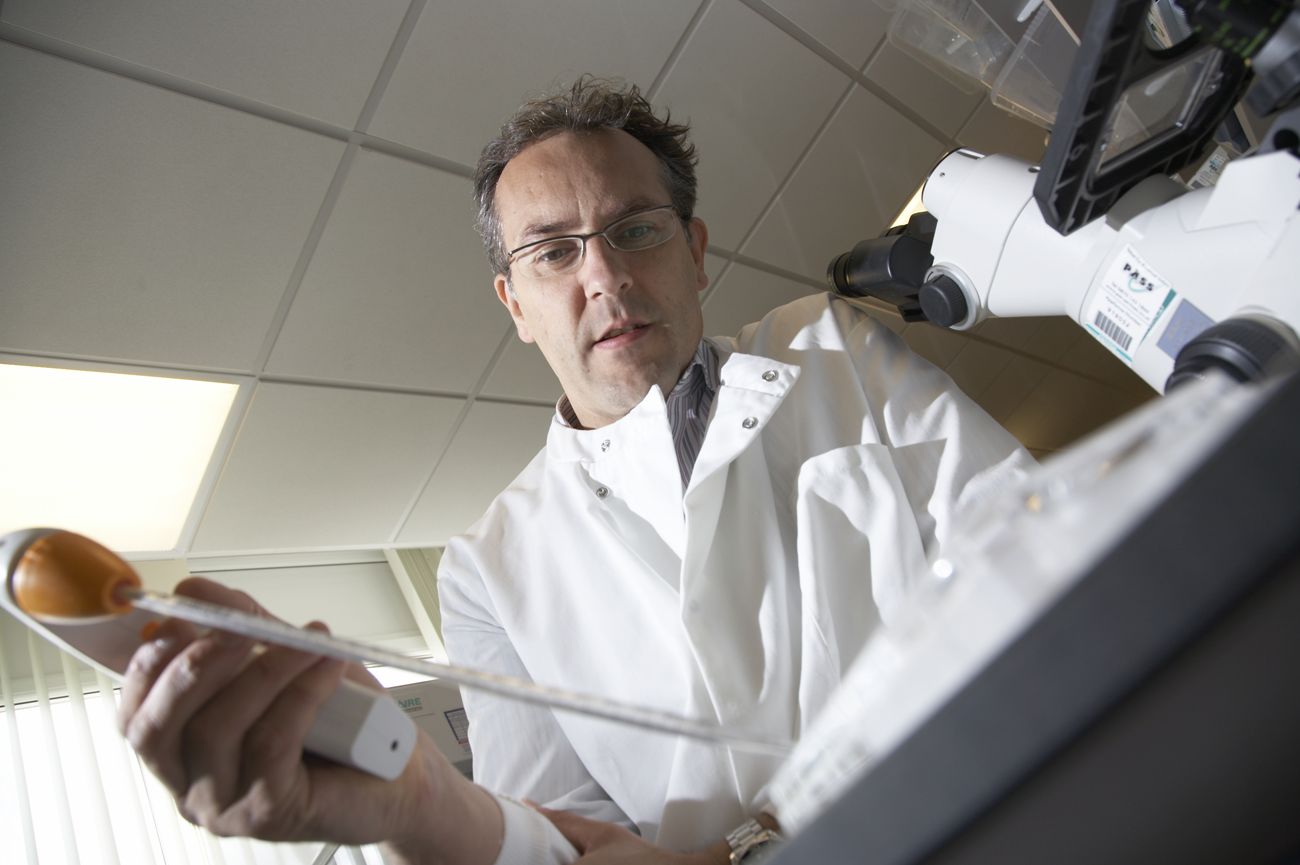Department of Biosciences

Welcome to the Department of Biosciences
The Department of Biosciences submitted 51 members of staff, comprising 49.2 Full-Time Equivalent (FTE) staff, to the REF Biological Sciences Unit of Assessment. The submission included six Early Career Researchers.
3D cell tech improves drug testing and reduces animal research
Our award-winning bioscientists have developed innovative 3D cell culture technology so scientists can grow realistic human tissues for more effective drug testing while reducing the need for animal research.
About the Department of Biosciences
The vision for biosciences research at Durham is to focus on fundamental and cross-disciplinary science underpinning global challenges in climate change, food security, global health, sustainable bio-manufacturing, biodiversity and replacing animal models in research. The cohesive and distinctive theme across our research portfolio is that of 'sustainability'.
Public engagement in the Department of Biosciences takes many forms, with two core large-scale events during the year:
- The Celebrate Science Festival. Every year Biosciences has a large exhibit with several activities showcasing our research areas in ways to bring these alive for everyone. The exhibit is run by a mixture of academics, research staff, postgraduate students and technical staff.
- The Schools’ Science Festival is a major annual event, designed to inspire school pupils in Years 9 and 10, stimulating interest and encouraging wider participation in Science, Technology, Engineering and Mathematics. The department hosts this event for the faculty and individual activities run several times for each visiting school party.
In addition to these large-scale events, our public engagement activities are diverse. These can be categorised as follows:
- Citizen Science, our highly successful MammalWeb platform to collate, validate and curate camera trap data that can inform the public about the distribution and ecology of mammals.
- Schools visits and activities such as the connecting schools to nature project, where we are working with at least 50 schools in the North East of England to improve awareness of and engagement with biodiversity.
- Public lectures, which range from the Royal Society to book festivals to Cafe Scientifique and Pint of Science.
- Media briefings about our research of interest to the general public, including COVID-19 sniffer dogs and Vitamin B12 synthesis for food supplements.
- Articles in broad interest magazines such as the World Wildlife Fund and interviews in the national press on topics including neglected tropical diseases.
- Charities and medical support groups, talks and activities linked to our research on the brain and pain for groups such as Parkinson's UK.
- Installations, we have a revolving public demonstration plot within our Botanic Gardens at Durham University to showcase the types of research and ecological challenges from the Molecular Plant Sciences and Ecology, Evolution and Environment research groupings. Importantly, public engagement is also an integral part of our undergraduate programme with our Public Engagement and Science into Schools modules.
All Biosciences teaching is research-led or research-informed. The co-delivery of research-led teaching promotes a broad-based, sustainability-centred research strategy, informed by scientific advances and national and international priorities.
Biosciences REF Impact Case Studies
Biosciences submitted four impact case studies demonstrating a wide range of impact and beneficiaries.
Click below to read more about our case studies
New commercial strategies for life science research and product development
Changing the way we do Global Vector Control
The application of ecological models to inform contemporary conservation management and future planning in response to climate change
Reducing impacts of river engineering infrastructure on fish migration and dispersal
Research Groups
The department’s research is organised into four groupings, to promote staff interactions: Animal Cells and Systems, Biomolecular Interactions, Ecology, Evolution and Environment and Molecular Plant Sciences.
Like to Know More?
To promote cross-disciplinary research, the department engages with discussion groups, research centres, institutes, networks and initiatives via the Bio-X network, where X is any discipline other than biology.
We engage closely with the Biophysical Sciences Institute, which undertakes research in the biophysical and biochemical sciences.
Co-location of some staff with Chemistry helps to underpin economic and social impact in ecosystems management, biotechnology, agritechnology and health.



/prod01/prodbucket01/media/durham-university/research-/ref-2021/52055.jpg)
/prod01/prodbucket01/media/durham-university/research-/research-centres/global-infectious-disease-centre-for/59405.jpg)
/prod01/prodbucket01/media/durham-university/research-/ref-2021/REF-climate-web.png)
/prod01/prodbucket01/media/durham-university/departments-/biosciences/research-groups/ecology-evolution-and-environment/ML-ICS.png)
.jpg)
/prod01/prodbucket01/media/durham-university/research-/research-centres/durham-centre-for-crop-improvement-technology/members-doing-research/Ari-Sadanandom-(3).jpg)
/prod01/prodbucket01/media/durham-university/research-/research-centres/durham-centre-for-bioimaging-technology/bioimaging/mcf10a_PABK1_K20-300dpi.jpg)